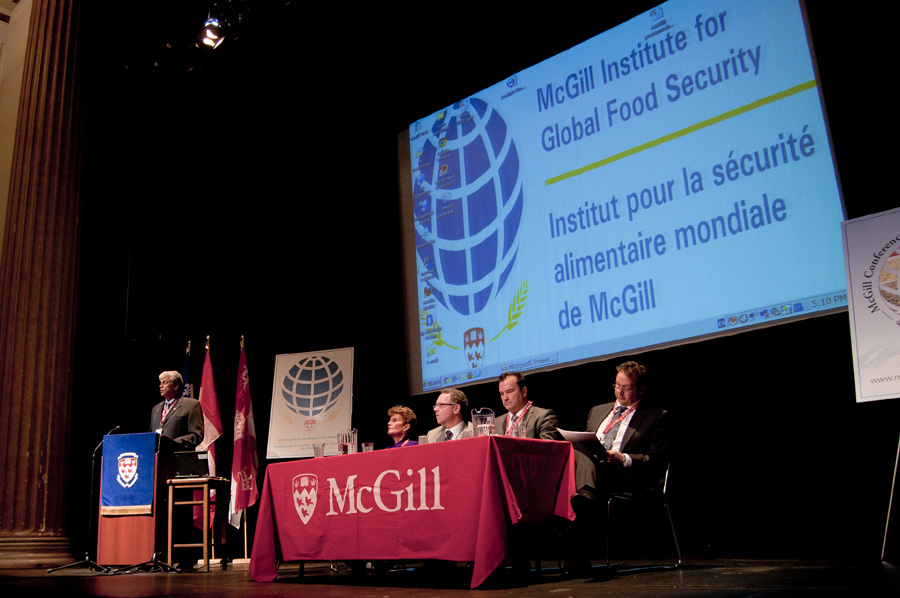The fifth McGill Conference on Global Food Security opened on Oct. 16 with Jean Lebel’s keynote speech on price volatility. Lebel, the Vice-President of the Programs and Partnerships Branch of the International Development Research Centre (IDRC), spoke about the challenges created by the unpredictability of food prices, and how to address these issues worldwide.
“Food security exists when all people at all times have physical and economic access to sufficient, safe, and nutritious food,” Lebel explained.
Changing agricultural conditions are one factor contributing to the volatility of food prices. While some factors in price variations are relatively predictable, such as the availability of local crops in different seasons, Lebel explained that they are ultimately difficult to predict due to external elements, like the weather.
Lebel emphasized that further investment in agricultural practices can mitigate the impact of fluctuating food prices on those living in poverty, who are highly susceptible to price volatility.
“It is estimated … that economic growth generated in agriculture is on average four times more efficient, effective, and benefitting the poorest half of the population than growth generated outside of agriculture,” Lebel said. “Growth in small agriculture significantly decreases poverty, and in most cases, also contributes to greater economic equality.”
According to Lebel, efforts to help these populations have significantly increased in recent years. He pointed to the G20’s Agriculture Market Information System (AMIS) as one effort to lessen the impact of changes in food prices.

“[AMIS] brings member countries together to share their information on prices, production, [and] policy options that are available in front of multiple parties,” Lebel said. “Rather than going on speculation, countries have come together, have shared their information, have better knowledge, and can make better informed decisions.”
To provide an example of ways people can help lessen the impact of price volatility, Lebel pointed to some of the IDRC-funded research in developing areas of the world. He restated IDRC’s commitment to bring knowledgeable people from all over the world together around common research projects, in order to find the best solutions.
“Through the research process, we hope that we can find a sustainable way of bringing food to the people, increasing their food security, [and] considering everyone as a community,” he said.
However, Lebel also acknowledged that increasing food security continues to be a difficult task. Currently, one in every eight people in the world is undernourished and consumes fewer than 800 calories in a day. Despite significant reductions in malnourishment in Latin America, the Caribbean, and Southeast and Eastern Asia, Lebel said the numbers in Sub-Saharan Africa and Southern Asia continue to grow.
Lebel concluded by calling for increased support in alleviating malnourishment and for greater investment in agricultural research.
“I am optimistic by nature, but I’m not a fool,” he said. “We’ve seen some progress—insufficient. We have seen money starting to flow back into agriculture, [but] what is preventing me from sleeping at night with all this development and all this optimism is that we miss opportunities to raise innovation at a scale that really makes a difference.”
Jessica Wu, a PhD candidate in the University of Calgary’s faculty of veterinary medicine, works on an IDRC-funded project on food security in Sri Lanka.
“[The speech] was very broad-based [but] he brought up a lot of good points,” Wu said. “It [was] really nice to see the results from some of the food security research projects that are going on, [but] it certainly is an extremely optimistic viewpoint.”







